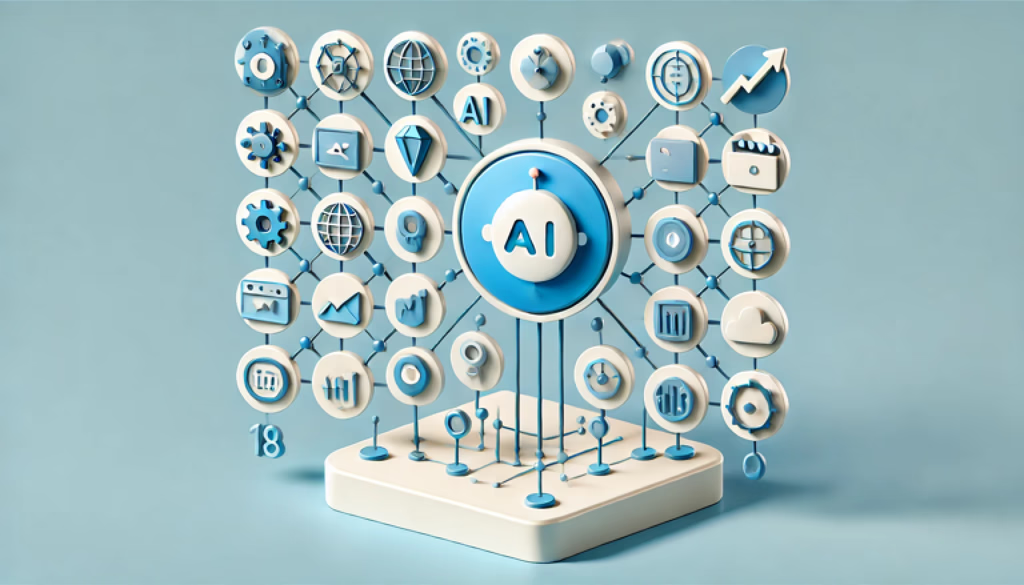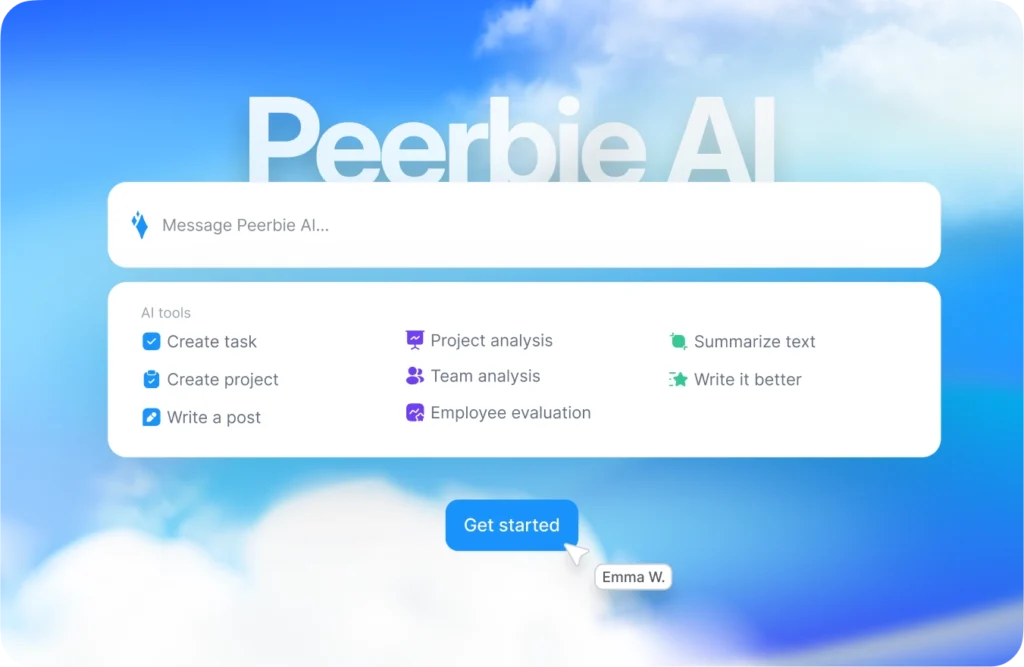18 AI Productivity Tools to Revolutionize Your Workflow

Artificial intelligence (AI) is no longer just a futuristic buzzword—it’s a transformative force in today’s workplace. From automating repetitive tasks to enhancing decision-making processes, AI tools have revolutionized how individuals and organizations operate. Whether you’re a solopreneur, a team leader, or part of a large enterprise, leveraging AI can dramatically improve your workflow, helping you work smarter, not harder.
In this article, we’ll explore 18 incredible AI productivity tools that can enhance your efficiency, save time, and boost your overall performance. But first, let’s understand the benefits of these tools and how to choose the right one for your needs.
Benefits of AI Productivity Tools
AI productivity tools bring an array of benefits to users across different industries. Let’s dive into some of the most compelling advantages:
- Time-Saving Capabilities: AI automates routine tasks, such as data entry, email sorting, or generating reports, freeing up your schedule for higher-value activities.
- Improved Accuracy: By reducing human error, AI tools ensure precision in calculations, data analysis, and task execution, leading to better outcomes.
- Increased Efficiency: AI enables multitasking by managing multiple processes simultaneously, such as scheduling meetings while analyzing project timelines.
- Reduced Manual Effort: Tasks that previously required hours of manual work can now be completed in minutes with AI-driven solutions.
- Personalized Workflows: AI adapts to your preferences, tailoring its functionalities to meet your specific needs and improving overall user experience.

How to Choose the Top AI Productivity App for Each Category?
Selecting the right AI productivity tool can be daunting with so many options available. Here are some tips to guide your decision:
- Identify Your Needs: Determine the area you want to optimize—be it project management, content creation, or time tracking. Clear objectives will help you find the right tool.
- Evaluate Features: Look for tools with robust features that align with your requirements. Check for scalability if you anticipate growth.
- User-Friendly Interface: A well-designed, intuitive interface ensures that you can quickly adapt to the tool without extensive training.
- Integration Capabilities: Ensure the app integrates seamlessly with other tools in your workflow, such as CRMs or email platforms.
- Cost and Support: Compare pricing models, free trials, and customer support options to ensure value for your investment.
How can you benefit from AI in your sector’s productivity?
Which field are you in? Medicine, finance, manufacturing, law, tourism, transportation… The answer doesn’t matter because AI is there to assist you with productivity tools in almost every sector. In nearly every industry you can think of, AI can enhance your productivity and help you work more efficiently.
How, you ask?
Let’s delve into these sectoral breakdowns and explore how AI can assist with productivity in more detail.
- Healthcare: AI can open new horizons in diagnosing diseases, creating personalized treatment plans, and developing new drugs. AI algorithms used in medical imaging can help diagnose diseases earlier, while the analysis of genetic data can offer personalized treatment methods.
- Finance: You can leverage AI in risk management, fraud detection, and investment decisions in the economic and financial fields. Algorithms can analyze large amounts of financial data, predict market trends, and help make better investment decisions.
- Manufacturing: Machines, factories, unmanned vehicles… AI supports you by automating production processes, increasing efficiency, and reducing costs. Robots and machine learning algorithms can work faster and more accurately on production lines, improving product quality while allowing you to focus on strategies.
- Transportation: Autonomous vehicles will become more widespread on the roads in the near future, thanks to AI. AI tools enable you to achieve more efficient solutions in the transportation sector by optimizing traffic flow, preventing accidents, and making transportation safer.
- Customer Service: AI applications like chatbots and virtual assistants automate customer service processes, increasing customer satisfaction. This way, customers can get quicker answers to their questions and find solutions to their problems more easily.
What are the first steps to getting started?
- Where do you want to be more productive? Email management, content creation, or data analysis? Whatever your goal is, set specific objectives. Instead of trying all the tools at once, start with a tool that meets your most urgent need. For example, you can choose an AI writing tool to ease your writing tasks or a transcription tool to automate your meeting notes.
- When you learn a new tool, make sure to use it regularly. This way, you’ll get to know the features of the tools better and integrate them more easily into your workflow. Getting used to AI tools may take some time. You might struggle at first, but with regular use, you’ll become faster and more effective.
- AI technologies are rapidly evolving. Keep track of updates for the tools you use to benefit from new features and improvements.
- Most AI tools offer customizable settings according to your preferences. By adjusting options like language, style, and format to meet your needs, you can achieve better results from the tools.
- When you start using a new AI tool, inform your team about it. This way, your team members can also benefit from these tools and work in collaboration.
How does AI enhance productivity in terms of personalization?
- Decision-making: Helps you make more informed decisions through data-driven analysis.
- Strengthening collaboration: Facilitates better communication among team members, ensuring projects are completed faster and more smoothly.
- Email management: Automatically sorts your inbox, highlights important emails, and suggests replies.
- Meeting management: Automatically takes meeting notes, assigns tasks, and follows up.
- Content creation: Automatically creates or drafts content such as blog posts, social media updates, and presentations.
- Data analysis: Analyzes large data sets, providing valuable insights for your business.
- Project management: Plans and tracks projects, optimizing resources.
So, which AI tools should you integrate into your work and life balance starting today? Let’s explore these tools.

Top 18 AI productivity tools
Writing and Content Creation
- Jasper.ai: Helps you create high-quality content for various purposes, including blog posts, social media updates, and emails.
- Copy.ai: Assists in generating copy for marketing, advertising, category, and product descriptions.
- Rytr: Enables you to produce engaging content in multiple languages, including blog posts, articles, and social media content.
- Quillbot: Helps you produce diverse content and improve your text with AI-powered tools.
- Peppertype.ai: Useful for creating creative and engaging content for various marketing needs.
Task Management and Collaboration
- Peerbie: Ideal for facilitating project management and team collaboration with AI-powered features.
- Trello: Helps you visually organize tasks and projects with its AI-powered automation system.
- Monday.com: Supports you in creating custom workflows and tracking progress with AI-driven insights.
- ClickUp: Assists you in managing tasks, projects, and goals with AI-powered automation and insights.
- Todoist: Helps you stay organized and productive with AI-powered task prioritization and reminders.
- Notta: Assists you in converting all your audio and video sources, like live meetings, podcasts, and interviews, into text.

Research and Analysis
- Otter.ai: Supports you in summarizing and identifying key points in audio and video files.
- Scite: Ideal for finding research papers and citations relevant to your queries with AI-powered search.
- Grammarly: Offers advantages to improve your writing with AI-powered grammar, spelling, and style suggestions.
- Hemingway Editor: Enables you to simplify and clarify your writing with AI-powered readability analysis.

Design and Creativity
- Midjourney: Helps you create stunning visuals from text descriptions with AI-powered image generation.
- Stable Diffusion: Provides support for creating high-quality images and artworks with AI-powered models.
- Canva: Allows you to create graphics, presentations, and social media content with AI-powered templates and tools.
Bonus: ChatGPT and Gemini
ChatGPT and Gemini are two powerful language models that have garnered significant attention in the field of AI. Both are capable of engaging in natural language conversations and performing a variety of tasks. It would be remiss not to include these two, who consistently provide solutions that enhance productivity, on our list. How about getting to know them a little better?
- Developed by: OpenAI
- Capabilities: Capable of generating human-quality text, translating languages, writing various types of creative content, and answering your questions informatively.
- Training: Trained on a vast dataset of text and code, enabling it to understand and generate human language.
- Developed by: Google AI
- Capabilities: A more general-purpose AI model capable of performing a broader range of tasks, including understanding and generating code, translating languages, writing various types of creative content, and even answering your questions informatively.
- Training: Like ChatGPT, trained on a massive dataset of text and code, but with a focus on multimodal understanding, enabling it to process and generate text, code, images, and audio.
Challenges of AI productivity tools
While AI productivity tools make our work lives easier, they also bring some challenges. As these tools become more widespread, several difficulties may arise.
Data Privacy and Security
- Protecting Sensitive Data: AI tools are fed with sensitive personal or commercial data. The security and privacy of this data are crucial. Data leakage risks can have serious consequences for companies.
- Biases: Biases in training data can also manifest in the outputs of AI tools. This can lead to discrimination and injustices, presenting an ethical issue.
Technical Challenges
- Integration: Integrating AI tools into existing systems requires technical infrastructure and expertise. Incompatibilities between different systems can complicate the integration process.
- Maintenance and Updates: AI models must be continuously updated and maintained. This process requires time and resources.
- High Computing Power: AI models require powerful hardware and infrastructure to process large amounts of data. This can increase costs.
Usage Challenges
- Complexity: Some AI tools can be challenging to use due to the technical knowledge required. This can prevent employees from effectively using these tools.
- Resistance to Change: Employees resistant to change may struggle to adopt AI tools. This can negatively impact collaboration and productivity.
Ethical Issues
- Responsibility: Who is responsible for decisions made by AI? In cases of incorrect decisions or biased outputs, it can be challenging to determine accountability.
- Job Losses: The widespread adoption of AI tools poses a risk of certain jobs becoming obsolete. This can lead to social and economic issues.
Reliability and Accuracy
- Misinformation: AI tools can produce misleading results based on incorrect or incomplete information. This can negatively affect decision-making processes.
However, when used correctly and effectively, AI productivity tools can help you reach your goals faster and in more impactful ways.
The adoption of AI productivity tools is no longer optional—it’s essential. These tools empower users to maximize their potential, focus on strategic priorities, and achieve unparalleled efficiency. By integrating these technologies into your workflow, you can stay ahead in today’s fast-paced digital landscape. So, why wait? Dive into the world of AI tools and transform how you work today.

